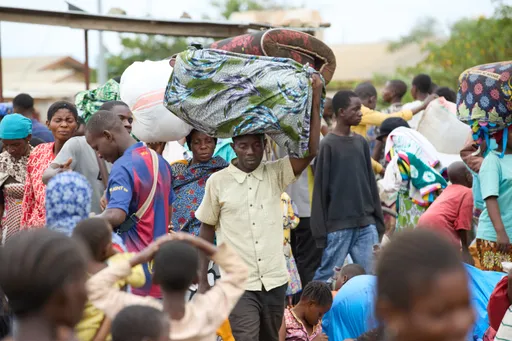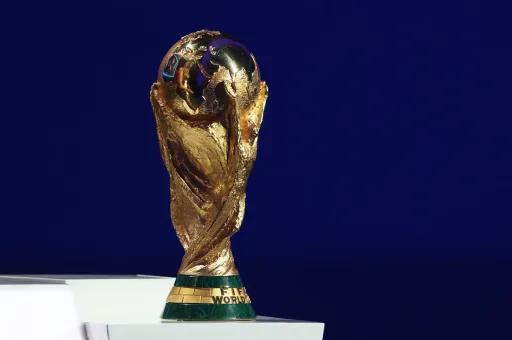By Mazhun Idris
It's been 100 days since President Bola Tinubu of Nigeria assumed office in a blaze of electoral glory sparked by the promise of change.
Tinubu's May 29 ascension to the leadership of Africa's largest economy and most populous nation came at a time of crises, notably a high rate of unemployment, inflation, and insecurity stemming from years of insurgency.
A lot has happened under Tinubu's presidency since then, both within and outside the country, for the administration's three-month performance card to present a variegated picture.
Fuel subsidy removal
The biggest ripples trailing the new political dispensation in Nigeria were caused by the socio-economic repercussions of terminating fuel subsidies that had kept pump prices low throughout the country for a long time.
Having committed himself to economic prudence while bidding for the presidency, Tinubu didn't waste time announcing after his swearing-in that he would completely remove subsidies on fuel and bring reform in the forex markets.
More than three months hence, opinion varies on whether the President bit the bullet too soon.
Kabir Ringim, an engineer who teaches at the Hadejia-based Binyaminu Usman Polytechnic in the northwestern state of Jigawa, says subsidy removal may have been a policy necessity, but the new government shouldn't have done it in such haste that underprivileged Nigerians would bear the brunt of the move.
"We agree that subsidy management was riddled with rackets run by smugglers who would siphon out cheap fuel for resale in neighbouring countries. But if previous governments failed to rein in the racketeers, this new one should have tried a new strategy. You don’t cut off your head to cure a headache," he tells TRT Afrika.
Cushioning the effects
As the fallout of removing subsidies took a toll on citizens, Tinubu's government lined up a series of social policies aimed at reducing the hardship that struck households nationwide.
The palliative measures included release of grain at a discount from the government reserves. The announcement of a cash-transfer plan meant to benefit the poorest strata of the populace was later reversed.
But on August 17, the government eventually released five billion naira (around US $6.5 million) to each of the country's 36 states. The money was meant to fund fleets of buses for public transport along with food distribution.
Tijjani Muhammad Musa, a veteran media manager in Nigeria's second largest city of Kano, feels more needs to be done for the poor because of the "huge negative impact being felt by ordinary Nigerians as a result of high fuel prices".
"Tinubu has been widely praised as an astute administrator, based on his antecedents as a two-term governor of Lagos state. But the hunger and the hardship we see in our communities do not justify our high hopes," he says.
President Tinubu has been hailed as an astute political organiser who knows how to assemble the right team for the job at hand. But he did not wait to inaugurate his economic team before announcing that Nigeria’s currency, the naira, would be unshackled to compete freely in the forex market.
Right direction?
His decision to ban the parallel foreign currency exchange market and devaluate the naira to close the gap between official and open market rates was deemed to be a step in the right direction.
Ringim is among those who agree with the decision. "I fully support the government on this because we can't survive by propping up the naira while piling on foreign debt. Also, a few people are exploiting the loopholes in our currency markets," he says.
The devaluation of naira inevitably led to a hike in prices of goods and services, occasioned by a high dependence on imported goods denominated by forex. The multiplier effect in inflationary pressure is still being felt by consumers.
The President followed up these measures by suspending the head of the central bank, Godwin Emefiele, midway into his second tenure. Experts saw this as a way of Tinubu stamping his authority on the national economy.
Victory Iniobong, a trader from Uyo in Akwa Ibom State of the Niger Delta region, is among those grappling with the pain of economic transition. "We were anticipating an impact on cost of living, but sustained high prices and the naira's depreciation are adding to the challenges of traders," she tells TRT Afrika.
Team formation
Tinubu did not announce his council of ministers until July 27, when he submitted the first list of his ministerial nominees to the federal legislature. His cabinet of 45 ministers was inaugurated on August 21 and given the task of driving a government’s agenda.
In June, shortly after taking over, the President had replaced the members of his security council, and appointed new heads of the military commands, as well as the Inspector General of police and the Comptroller General of the customs service.
Musa notes that Tinubu's appointment of aides and the Secretary to the Government of the Federation was "shorn of drama", although there had been "some back and forth in choosing his cabinet".
"We have every reason to keep our fingers crossed as the President and his team earnestly study our problems and come out with homegrown solutions that will revive our domestic economy, including our small-scale industries and the informal sector," he says.
Niger’s coup crisis
Six weeks into his tenure, President Tinubu was elected to lead the regional bloc, ECOWAS, at the forum's meeting in Ghana.
By his third week as the chairperson of ECOWAS, a military coup had thrown into turmoil Nigeria’s northern neighbour, the Republic of Niger.
The political quagmire created by the putsch remains unresolved despite Tinubu's stark warning when he took over the bloc's leadership that West Africa would no longer tolerate any unconstitutional change in government like that in the three member countries of Mali, Burkina Faso, and Guinea.
In the eyes of many, the coup d’etat in Niger was the acid test of Tinubu's capacity to lead the region on the path of political and economic prosperity.
ECOWAS's ultimatum to the military junta to reinstate deposed President Mohamed Bazoum or face military intervention did not, however, go down well.
"The decision on Niger was a bit hasty, more so without legislative and public backing. But we appreciate his listening to the discontent," Musa says.
More than a month since the Niger coup, not much progress has been made towards restoration of democracy in the Sahelian country.
The clock is ticking on President Tinubu's efforts to find a way to preserve peace and stability in the West African region.
As Tinubu’s government marks 100 days into its four-year term, some Nigerians are say they are disappointed so far, but are optimistic that things could be better.
























